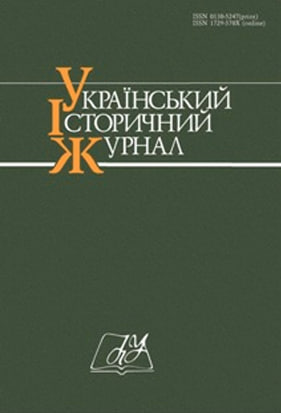Establishment of Testaments in Towns of the Volynian Voivodeship in the 17th Century: Legal Grounds and Practices
DOI:
https://doi.org/10.15407/uhj2021.01.027Keywords:
testaments, legacy, Magdeburg law, law of legacy, Second Lithuanian Statute, town chancellery, town society, Volynian VoivodeshipAbstract
The objective of the article is to analyze the legal grounds and practices of establishment of testaments in the town society of the Volynian Voivodeship in the 17th century.
The methodology of the research consists in using the methods of comparative-historical and system analysis, social anthropology in studying the legislation (in particular the law of adversity), the universal practices of laying down the testament in the towns of the Volynian Voivodeship of the 17th century.
Scientific novelty. The article outlined the legal grounds for making testamentary documents and the recourse to the norms according to the Second Lithuanian Statute and the collections of Municipal Law by Bartolomeus Groicki, which were widely used in the court practice of Ukrainian cities of the early modern period. The article describes the process and the order of executing of testaments in all practices in Volynian towns during the 17th century. It was informed that the standard was the execution of testament in the house of a dying person (in the presence of municipal officers and witnesses), or in the city hall before the city court.
Conclusions. In the cities, governed by Magdeburg law, B.Groicki (1534–1605) in their books of a legislative nature specified the order of residence, execution of rights and establishing of testaments. The norms of the Second Lithuanian Statute applied to inhabitants of non-privileged cities and representatives of different classes, who stayed behind the municipal jurisdiction. The local chancellery played a major role in the formation of the testament as an important private legal act, which was obligatory for execution after the death of the testator. Unhappy with the last will of the testator, they could take the order to court, but in practice, it was used by a small part of the citizens of the cities. The analysis of legal sources and their comparison with the practice of making testamentary documents gives grounds to conclude that the townspeople in most cases took the law and adhered to the provisions of the testamentary documents. Rarely were the cases when they did these acts by themselves. Most of the testators were unwritten and required the assistance of the city clerk’s office to draw up the act. After their deaths, these documents had to be recorded in the municipal registers, but as the analysis of the act documentation shows, this occurred sporadically. The reasons for this could be the unwillingness of the residents to pay for the related clerical expenses or the absence of the need to do so. In general, despite the widespread practice of making testamentary documents in the cities of the Polish-Lithuanian Commonwealth, these documents did not become a mass production of documents in Volynian towns; most of the orders of the last will were made without any further written fixation.


